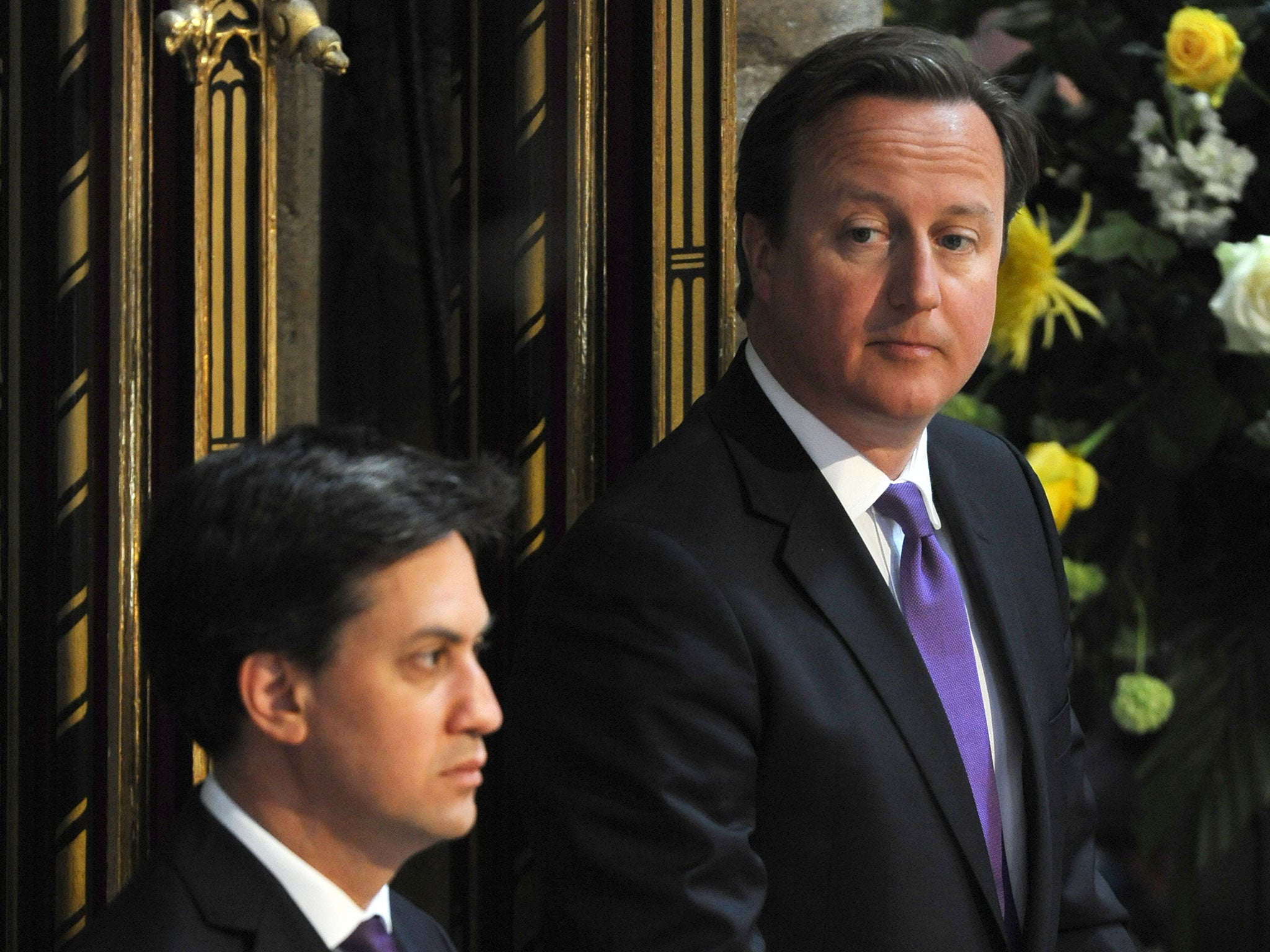The key questions that Labour and the Tories haven’t begun to answer
Neither of the two main parties has been upfront about how they'll govern in the next austerity-driven parliament

Amid the sloganeering, claims and counter-claims that have characterised the start of Election 2015, there has been an abundance of smoke, quite a few mirrors and rather little light.
The Tories claim they are the party that will eliminate the deficit and guide the UK on the path to economic recovery, all without raising taxes.
Labour claims it will eliminate the deficit in a “fairer” way while magically finding billions of pounds to protect the NHS and only taxing the super rich.
What are we expected to make of these broad-brush claims? Well here’s a suggestion: ignore it all and cast your vote on how well each of the main parties answers three simple questions, ones they are not even beginning to talk seriously about.
These are as follows: what specific public services will you cut, what new taxes will you introduce, and what will happen to the welfare state?
Let’s take the Tories first. What we know is that they intend to pay off the deficit entirely through £20bn of cuts to public spending and welfare – but the NHS will be protected.
But at the same time they are planning two tax cuts that will cost £7.2bn, by raising the income tax threshold to £12,500 and 40p threshold to £50,000.
That leaves them with a whopping £24bn worth of unidentified cuts to find, of which £9bn will come from the welfare budget and the rest through cutting departmental spending by 1 per cent in real terms until the end of the parliament.
But they’re not saying where the axe will fall. Will there be fewer teachers or police? Will there be any arts funding to speak of? How small will the armed forces be and will they stick to current international aid commitments?
The same is true with welfare: £9bn is a vast amount of money to find but they still won’t say where it is coming from. For example: will child benefit exist at all in 2020? Will pensioner benefits still be sacrosanct or will the burden of cuts all fall on the working poor?
What about Labour? They have been carrying out what they call a “zero-based review” of all Government spending, which they say will identify where cuts can be responsibly made.
So far, three of these have been published covering policing, government assets and local government, but they have only identified savings of less than £1bn.
To describe the reviews as a “back of the fag packet” exercise would do a disservice to fag packets. They are high on rhetoric – but little else.
If Labour are not going to cut as brutally as the Tories, one way around this could be to raise taxes. And indeed Ed Balls has announced several new income-raising plans.
But most of these are all to pay for additional spending. The mansion tax, for example, will pay for more money for the NHS, the bank levy will pay for free childcare and scrapping the marriage tax allowance will be off-set by the new 10p rate of tax.
Only the new 50p tax rate for high earners does not have a spending commitment attached to it – meaning Labour has a big hole in their pledge to take Britain back into the black, unless there are more taxes we don’t yet know about or the economy recovers faster than expected.
The reality is that neither of the two main parties has come anywhere close to being upfront with voters about how exactly they will govern in the next austerity parliament.
And, frankly, until and unless we get convincing answers to these questions, it will be hard to put faith in either party – regardless of their slogans.


Join our commenting forum
Join thought-provoking conversations, follow other Independent readers and see their replies